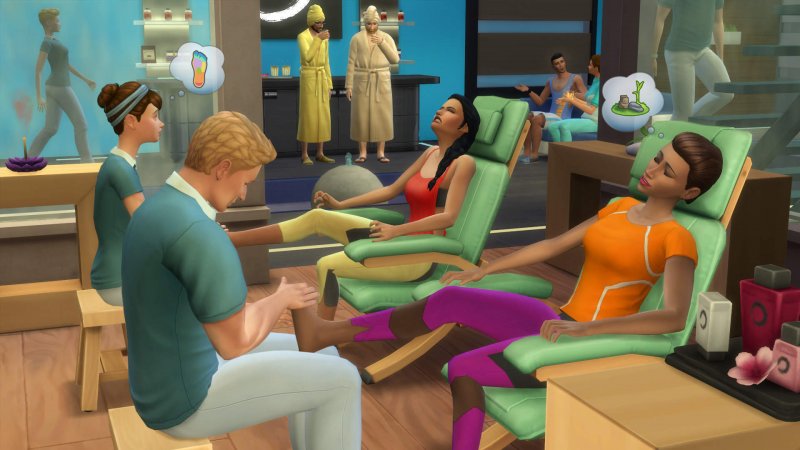
Let’s not act as if neither of us knows anything about gaming, regardless of how old we are. Surely you’ll remember the Super Nintendo console (SNES) and Sega’s Mega Drive (or Genesis, if you’re an American)? Well, it’s now been 25 years since they were released. OK, fine, it’s been 25 years since the SNES’ debut in Japan, whereas the Mega Drive was released 25 years ago only in Europe, having arrived in Asia and North America a bit earlier, but you get the idea.

Sonic the Hedgehog by Sega
It’s amazing to think a quarter of a century has passed since these digital delights were unveiled for purchase, and both corporate heavyweights were ready for battle. Sega jumped into the new era by bundling Sonic, their prized blue mascot and Nintendo retaliated by including a Mario title with their console.
Today’s equivalent console battle involves (primarily) Sony and Microsoft, trying to entice customers with similar titles and features unique to either the PlayStation 4 (PS4) or Xbox One. However, Nintendo was trying to focus on younger gamers, or rather family-friendly audiences (and still does) thanks to the endless worlds provided by Super Mario World, while Sega marketed its device to older audiences with popular action titles such as Shinobi and Altered Beast.

Donkey Kong Country by Rare
But there was one thing the Mega Drive had going for it that made it my favourite console ever: speed. The original Sonic the Hedgehog was blazingly fast compared to anything I had ever seen before, and the sunny background music helped calm any nerves and the urge to speed through the game without care. The alternative offered by the SNES included better visuals. Just look at the 3D characters and scenery in Donkey Kong Country. No wonder it ended up becoming the second best-selling game for the console.

Street Fighter II by Capcom
The contest between Sega and Nintendo was rough, but Nintendo ultimately came out ahead thanks to significant titles released later, demonstrated no better than Capcom’s classic fighting game Street Fighter II. Here was a game flooding arcade floors across the world, allowing friends to play together against each other.
The frantic sights and sounds of the 16-bit era of gaming completely changed many people’s lives, including my own, and the industry as a whole. My siblings and I still fondly remember our parents buying different consoles (thankfully we were saved from owning a Dreamcast or Saturn). Whether it was the built-in version of Sonic on the Master System or the pain-in-the-ass difficult Black Belt, My Hero or Asterix titles, our eyes were glued to the screen more than the way Live & Kicking was able to manage every Saturday morning.

The Sims 4 by Maxis
Today’s console games are hyper-realistic, either in serious ways such as the over-the-top fatalities in modern Mortal Kombat games or through comedy in having to monitor character urine levels in The Sims 4. This forgotten generation of 90s gaming provided enough visual cues to help players comprehend what was happening to allow a new world to be created in our minds, like a good graphic novel.
I’m not at all saying gaming has become better or worse, but it is different. While advantages have been gained over the years, such as the time I was asked if I was gay by a child during a Halo 3 battle online, there are very few chances to bond with someone over what’s glaring from the same TV screen other than during “Netflix and chill”.

Wipeout Pure by Sony
This is where the classics of previous eras win for emotional value over today’s blockbuster games. Working with my brother to complete Streets of Rage, Two Crude Dudes or even the first Halo was a draining, adventurous journey, with all the ups and downs of a Hollywood epic. I was just as enthralled watching him navigate away from the baddies, pushing Mario to higher and higher platforms in Super Mario Land on the SNES just before breaking the fast.
It’s no surprise YouTube’s Let’s Play culture is so popular. Solo experiences such as Ico and Wipeout Pure can be mind-bending journeys too, into environments that films could not even remotely compete with.
But here’s the thing: it was a big social occasion playing with friends in the same room. Now, even the latest Halo game assumes you no longer want physical contact with your chums, restricting you to playing the game with them without being in their company.

Halo: Combat Evolved by Bungie
This is odd, given I only ever played the original title, like many other, as part of an effective duo. Somehow these sorts of games have become simultaneously lonely and social. Unless one of you decides to carry out the logistical nightmare of hooking up a second TV and console next to the one already in your living room.
This is why handhelds such as the Gameboy and PSP were so popular, forcing you to move your backside to strengthen your friendship. That was the whole point of the end-of-year “games days” in primary school, after all.

Mario Kart 8 by Nintendo
The industry can learn one or two things by seeing what made certain titles successful. It’s why the Wii U – despite its poor sales performance compared with the PS4 – is an excellent party console, allowing you to blame a friend for your pitfalls in the latest Donkey Kong game. Or you can taunt them no end in Mario Kart 8, the console’s best-selling game, which is ironic given its crucial local multiplayer feature, making you suspect there would be fewer physical copies in the wild.
In the same way social media makes it seem like you have loads of friends until you try to recall the last time you saw them, gaming has undergone tremendous change through the advent of the internet. But the best games are always the ones you remember playing with someone by your side.





